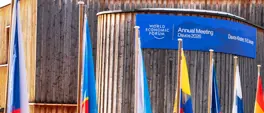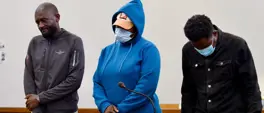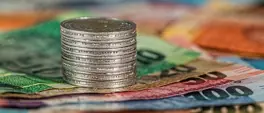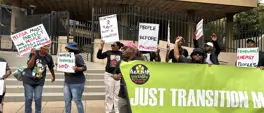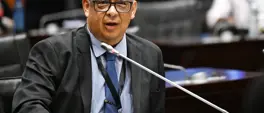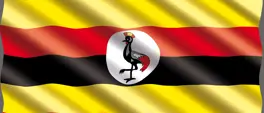E.Guinea lashes 'neo-colonial' France at UN top court over Paris mansion
AFP
15 July 2025 | 10:55The central African nation has asked the International Court of Justice (ICJ) to issue emergency orders preventing France from selling the building, seized after a court convicted Vice President Teodoro Nguema Obiang Mangue, known as Teodorin, for corruption.
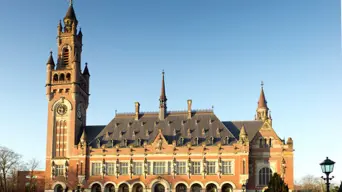
The International Court of Justice, which has its seat in The Hague, is the principal judicial organ of the United Nations. Picture: https://www.icj-cij.org/home
THE HAGUE - Equatorial Guinea hit out at France at the UN top court on Tuesday, describing its actions as "neo-colonial" in a long-running dispute over a swanky multi-million-euro Paris mansion confiscated by French authorities.
The central African nation has asked the International Court of Justice (ICJ) to issue emergency orders preventing France from selling the building, seized after a court convicted Vice President Teodoro Nguema Obiang Mangue, known as Teodorin, for corruption.
French authorities seized the property, which boasts a cinema, a hammam, as well as marble and gold water taps, after convicting Obiang under a law targeting fortunes fraudulently amassed by foreign leaders.
France's approach "may be described as paternalistic and even neo-colonial," charged Carmelo Nvono-Nca, Equatorial Guinea's ambassador to France.
"We cannot accept such disdain for our sovereignty from France... we cannot accept it," said Nvono-Nca.
In 2021, France's top appeals court gave Obiang - eldest son of the long-standing president of Equatorial Guinea, Teodoro Obiang Nguema Mbasogo - a three-year suspended sentence and 30 million euros ($35 million) in fines.
France also confiscated assets, including the luxurious building near the Arc de Triomphe, which has an estimated value well above 100 million euros.
In its latest complaint to the ICJ last week, Equatorial Guinea said French police entered the property last month and changed the locks on several of the doors.
Equatorial Guinea urged the court to order France to give it "immediate, complete and unhindered access" to the building.
"France has not yet understood that we Africans no longer accept interference in our internal affairs," said Nvono-Nca.
"It has now become clear that France is determined to sell the building. And to unilaterally decide the use to be given to the proceeds of the sale," added the ambassador.
2016 DISPUTE
The mansion was also at the centre of an earlier case filed by Equatorial Guinea in 2016 at the ICJ, which rules on disputes between UN member states.
Equatorial Guinea argued the building served as the country's embassy in France and that Paris had broken the Vienna Convention, which safeguards diplomats from interference by host countries.
But the UN court sided with France, which said the building was merely Teodorin Obiang's residence and served no diplomatic purpose.
The ICJ upheld France's objections that Equatorial Guinea had only tried to designate it as such after the investigation into Obiang began, and that the country already had an embassy in Paris.
A request for emergency orders - provisional measures, in the court's jargon - takes precedence over all other court business.
The ICJ is wrestling with a busy caseload, including a high-profile case brought by South Africa against Israel, alleging its actions in Gaza have breached the UN Genocide Convention.
The court will also deliver a key ruling on countries' climate change obligations next Wednesday.
While the ICJ is the highest United Nations court, whose rulings are binding, it has no way of enforcing its decisions.
For example, it has ordered Russia to stop its invasion of Ukraine - to no avail.
Get the whole picture 💡
Take a look at the topic timeline for all related articles.

